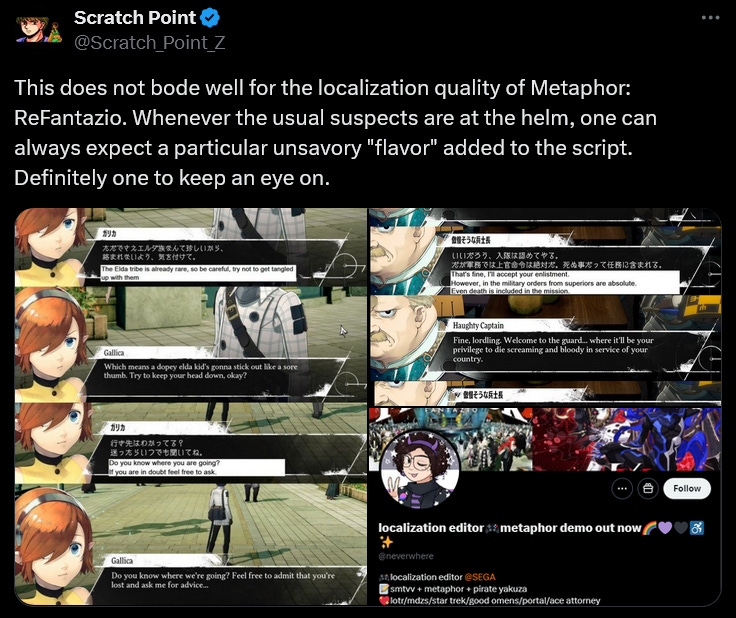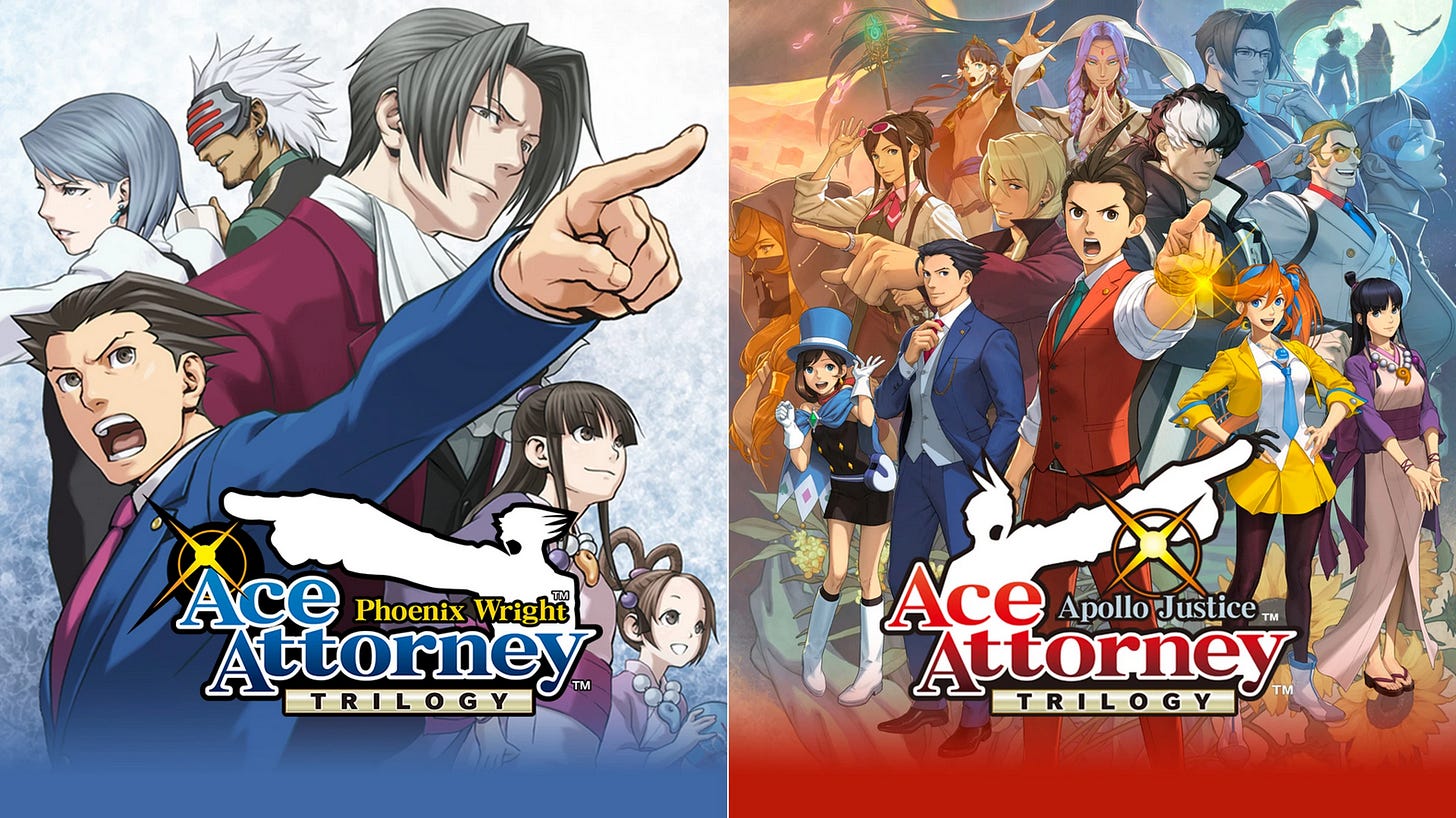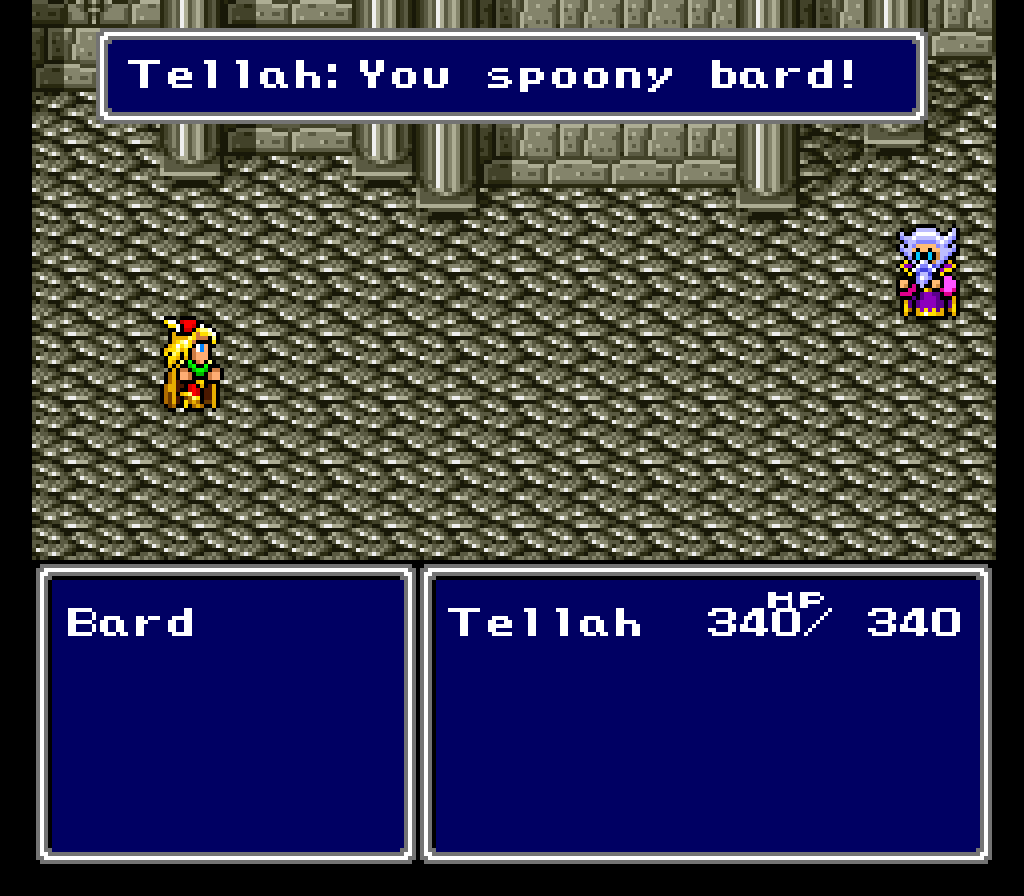POV: The Localization Debate
How much flavor should localization add to a game? How direct should the translation be? Let us discuss these with some examples from the industry!
Welcome to POV! POV - or Point of View - is a new series where I will be discussing some things on my mind and give my completely honest opinion. They will usually be about gaming but I might go into other fictional media in the future. Today, I’ve decided to venture into the world of localization, and give some of my opinions using my professional experiences in the industry and my personal familiarity with games in general.
The Debate
If you are on Twitter and follow some video game accounts, chances are you have been recommended at least one thread on the “controversy” about video game localization. This kind of conversation rears its head every once in a while, and recently it resurfaced with the release of Metaphor: ReFantazio. I’ll be honest, it is always thoroughly fascinating to read these opinions as they differ so much from mine. I still enjoy reading about different opinions though (so long as they are respectful, of course).
For the uninitiated, here is the tweet that started the discussion (to my knowledge):
Before we start this off, I wanted to say that I have been in this line of work for some years now and I have gained quite a bit of knowledge about how video game localization works. I have been on both sides of the job: I have been the client and I have been the localization specialist. So don’t think I’m pulling it out of my rear when I say that what you see on the screen and what goes on behind the scenes when it comes to localization are very different.
How localization choices affect our enjoyment of a game
Let’s talk a little about my favorite video game series and what I consider to be the pinnacle of localization: The Ace Attorney series. It is a visual novel/adventure series where you assume the role of a defense lawyer, investigate cases and defend your clients in court. It’s all wacky hijinks combined with tight character arcs and great mysteries waiting to be resolved. Highly recommended!
Back to the topic, I am firm in my belief that without the specific choices made by the localizers, the Ace Attorney series wouldn’t have been as big as it is now in the west and it would have lost so much flavor in terms of text and dialogue. This series is literally what encouraged me to master English as a second language because I was so enamoured with it.
I had never heard anyone say that Ace Attorney’s localization was bad until I went on Twitter. Now, I agree that Twitter users can be… out there sometimes but there are interesting points as well. The thing is, I believe what makes Ace Attorney so good is a combination different factors: plot, characters, art, writing and for western releases, the incredible localization.

A lot of people seem to be conflicted over whether or not it was a good idea to make the setting of the game freaking California, but I will say that it was a genius move. The setting of the first Ace Attorney game is vague enough that you can afford to take such liberties. The game itself isn’t realistic. You get spirit mediums as judicial assistants, kids can become prosecutors at the age of 13, prosecutors can go undefeated for 40 years… There is a glowing rock that allows you to see other people’s hearts. I think you can afford to take some liberties with the setting a little.
And if you think that these kinds of desicions are made in a bubble, you cannot be more wrong. The localization team and the developers are generally always in contact with each other, and big desicions such as changing the setting of the game are made with everyone’s agreement. So the notion that Shu Takumi had no idea that the localizers decided to make the setting America is simply ridiculous. I seriously doubt that Takumi had no idea that Ryūichi Naruhodō was going to be called Phoenix Wright in the English version.
In my head, the localization choices make the game infinitely funnier. A random Japanese village named Kurain in Japan? Yeah, sure. Why not? But a random Japanese village named Kurain in the middle of California where all the signs are in Japanese and there is no explanation for it? And the characters don’t even bat an eye and continue pretending that everything is very American? And there is another Japanese-styled village where Yokai are a normal phenomenon in which the characters slap Japanese warding charms on other people’s foreheads and the characters talk about this as if it’s another Tuesday? Super funny and completely in-line with the tone that the game is going for.
There is also stuff like character names such as Shelly De Killer (who is an assassin), Luke Atmey (who is an egotistical detective), Paul Atishon (who is a politican…), Pal Meraktis (who is a bad doctor). And best/worst of all: Deid Mann… Like come on. It is so dumb that it’s hilarious.
One of my favorite examples of a localization completely changing something comes in the form of food. In the original, Maya is obsessed with ramens. Totally normal, it is a very common food in Japan. What did the localization team decide to interpret it as for the English release? Hamburgers. Because America, am I right? And because they made this choice in the first game, they had to commit, which eventually made it harder for them to translate stuff in the later games, as ramen becomes a bit more relevant later on. So they had to come up with creative stuff to keep it smooth.
Now, you can argue about how these changes were unnecessary and erased the original intent, but I disagree. If this were a Persona game where the Japanese setting was incredibly relevant, I would be opposed to such drastic changes too. But Ace Attorney leaves enough space for the localization team to wriggle in some creativity, and you can tell that the localization team had a lot of fun working on these projects, which makes playing it fun in turn.
And as I've said, you cannot convince me Shu Takumi has no idea about what the localization team were up to. In fact, here is the interview between Shu Takumi himself and Janet Hsu, the lead localizer of the series.
Janet: Speaking of the localization, I remember you mentioned a long time ago that you didn’t really consider the localization when you created the second and third games (Justice For All and Trials and Tribulations) because you had received word that there would be no localizations of those games.
Takumi: That’s right. When I was in the middle of making the first game, I remember thinking to myself “I shouldn’t create any plot points or puzzles based entirely around Japanese-only language tricks, just in case we make an overseas version.” But when we finished making the first game, I remember asking the producer at the time, Mr. Mikami, “So, are we making an overseas version?” to which he replied, “Of course not, no way.” So that’s when I stopped trying to hold back and freely used whatever tricks I wanted when making the second and third games.
Janet: Tell me about it… *shudder*
The localization choices made by the team gave way to one of my favorite fancomics in the internet:

Even the official Ace Attorney account acknowledges the meme!
You spoony bard!
I also want to quickly mention one of my favorite translations becoming a meme on its own, and even being mentioned in other games!
The original translation for the game included this line for some reason and the internet took off with it later on. It became one of the most famous (or infamous) examples of a localization choice, as the original game has no mention of a spoon or a bard. But the line became so beloved that the ports and remakes of the game retained the spoony bard, and even went out of their way to include the line.

Even Ace Attorney included this line! As I’ve said, the Ace Attorney localization team seems to be having a lot of fun when they translate these games.
If you are interested in reading more about this, you can check out Legends of Localization. It is a great source to learn more about localization, especially of older JRPG games. I myself have learned a great deal from them!
What is happening behind the scenes?
The other day, I was proofreading a translation script for a video game and the translator did such a great job at localizing the puns that I was laughing out loud in my room. I had to barge into my husband’s room and tell him about the incredible wordplay that the translator came up with. The translation itself was funny, but I think I was more amazed at how good the adaptation to my language was.
And that’s what localization is basically about. Instead of translating what you see, you adapt it into the target language and ensure that it carries the same connotations, the same intention and tone. A lot of the “anti-localization” folks seem to be missing this key point. I understand what they are saying in a way: the intent of the original creators get lost when you adapt it instead of translating it directly.
In the example of Metaphor:ReFantazio above, people seem to be saying that the localization added unnecessary fluff and made it something else. The thing is, the intention is lost no matter how you translate it. It is basically impossible to translate anything while keeping both the intention and accuracy because different countries have different languages, therefore different cultures. As long as these cultural differences exist, it is not possible to entirely convey what the original creator intended. If you translate directly, you will lose the subtext. If you try to include the subtext, you risk losing the original intent.
The issue is that, unless you learn the language itself, you will never really understand what the creator meant. This has been an issue since we first figured out how to translate between different languages. You won’t get what Dostoyevski really meant to convey in his books unless you learn Russian and learn about Russian culture. Every translation brings a new life to the work, this is undeniable.
I hope people realize just how much work there is behind the scenes. People seem to think that localizers have some sort of “agenda” and will inject everything with “woke” or whatever, but there are strict rules in place and style guides that they have to follow.
I won’t say that every localization specialist is perfect and they always deliver top-notch translations. Just like in every industry, there are all kinds of people who work in translation. And there is bound to be some mistakes because we are all human.
However, I can say with ease that most people who work in localization, especially video game localization, are genuinely passionate about their work. Most people aren’t in it for the money, I can tell you that much.
In localization, it is extremely important to have a firm grasp of the source language and be absolutely excellent at the target language. For example, my native language is Turkish. I am and have always been quite good at English, I know quite a lot about American culture and I have always enjoyed learning new languages.
However, my strength lies in my proficiency in Turkish, my target language. Now, you might say that it’s unsurprising as it’s my native language. But the first thing you learn when you start working in this industry is that being a native speaker is not enough. You need to know excellent grammar, have a wide vocabulary, know all sorts of idioms, have impeccable knowledge of punctuation and so on.
You need to understand the idioms and allegories in English, yes, but more importantly, you need to be able to find a perfect match for those in your own language. You need to be able to adapt different accents into your own language. If a character speaks in a Texan accent, you need to find the equivalent to it in your own language. It isn’t as simple as knowing a language. There are times when multiple experienced translators huddle up and discuss for half an hour to decide if there should be a comma or a semicolon in a sentence so that it can convey the meaning of the original text the best.
In addition to all this, any translated work goes through multiple reviews, which is why having an “agenda” is useless. You wouldn’t be able to pass these reviews if you were trying to completely alter the meaning of the original work. This is especially true for story-based games like Metaphor: ReFantazio. You cannot decide to suddenly deviate from the style guide because you want to make a character a certain way. Especially in bigger games from bigger studios, one single translator is never the reason why a localization choice was made.
Thank you for reading! I hope this was an interesting article for you. I wanted to put my experiences to use and try something different with my newsletter. I am hoping to put out opinion pieces like this from time to time, but they take more effort and research than a simple review so I’m not sure how often they would be.
Let me know what you think about video game localization! Do you agree with me or do you think that localizations should be more direct without trying to adapt? I’d love to discuss!










Amazing post. I started my career in the localisation industry of video games as translator and QA specialist for my language and this post is genius. Thank you. I really enjoyed reading it. I also grew up with English language games and never knew what was going on but somehow managed to play the games 😂 brilliant post.
This is probably the best article I've read about what goes into a video game translation and why certain changes are necessary. Very well-written, thank you!